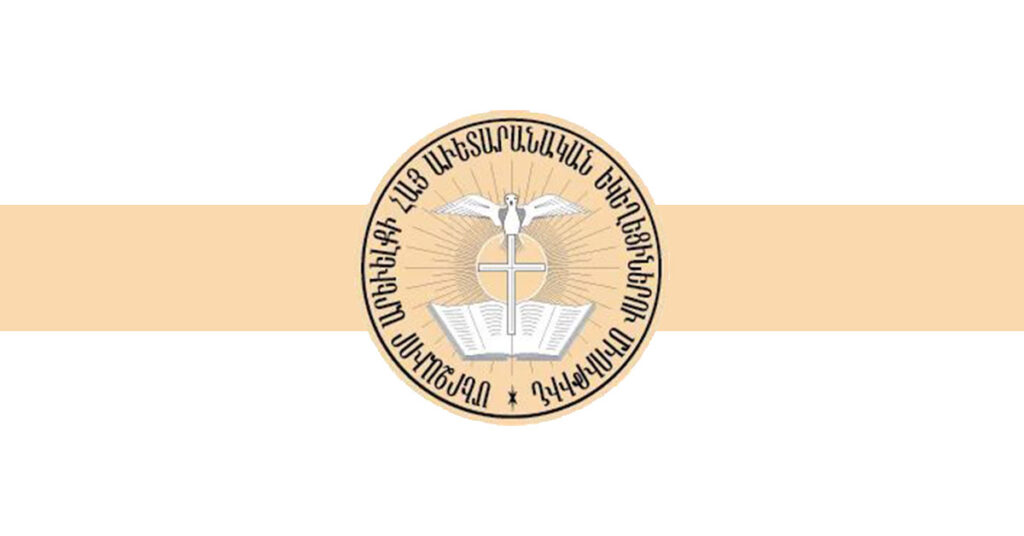Union of Armenian Evangelical Churches in the Near East
The Union of Armenian Evangelical Churches in the Near East was formed in 1924 as a consolidation of the Armenian Evangelical movement which began in the 1820’s. It is comprised of 17 congregations rooted in the longer history of Armenian Christianity. Located in eight countries (Egypt, Greece, Iran, Iraq, Lebanon, Syria, Turkey, and Australia), the congregations and institutions of the Union have persisted in mission and in presence through the Middle East’s political and social strife.
Armenians are especially proud that Armenia was the first country to adopt Christianity as the official state religion in 301 A.D. Having recently celebrated 1700 years of orthodox Christianity in Armenia, the Armenian churches are proud of their heritage and look forward to many more years of celebrating and responding to Jesus’ call. Through its many contributions of ministry and service in the Middle East, the Union upholds that call and is a steadfast presence and witness to Christ’s message of hope and reconciliation in a troubled region. The Union’s headquarters is located in Beirut, Lebanon.
This church is an autonomous body comprised of congregations throughout Lebanon, Syria, Turkey, Egypt, Greece, Iran, Iraq, and also Australia. It began in the 19th century as an indigenous reform movement within the Armenian Apostolic Church, and developed into an independent community in 1846 in Istanbul, and in subsequent decades registered a membership of 60,000 throughout the Ottoman empire. After the First World War, when the Armenian population was decimated and the remnant deported from its historic homeland in what is now Turkey, the Union was reorganized in Syria and Lebanon. The Union is composed of autonomous congregations. Its organizational pattern is a kind of modified congregationalism. The annual convention of the Union is the highest authority. The central committee of 12 members, elected at the convention, acts as an administrative body supervising and coordinating the activities of the member churches and church-related institutions.
From its inception, the Armenian Evangelical Church has stressed the importance of education. It now operates 23 schools and four high schools and owns the only university in the Armenian diaspora: Haigazian University, with an enrolment of 650 students. It operates four conference centres in Syria, Lebanon, Iran and Turkey. Together with the Arabic-speaking Evangelical churches, the Union owns and operates a secondary school in Aleppo and the Near East School of Theology in Beirut (the latter also supported by foreign missionary agencies).
With the Armenian Orthodox and Armenian Catholic Catholicosates it operates the old people’s homes in Aleppo and Beirut, and a sanatorium in Lebanon.
It has developed ecumenical ties with several churches and fraternal relations with the Armenian Evangelical Union of North America, the Armenian Evangelical Union of France and the Armenian Evangelical Union of Armenia. In spite of grave problems of emigration and persecution, the Union continues to function with a growing awareness of its mission in its territories.
Website: http://www.uaecne.org/
YouTube Channel (choir music, sermons, other resources)
Support this Ministry
To make a gift for this ministry online or by check use the online donation page.
- 100% of your gift will be directed to Union of Armenian Evangelical Churches in the Near East
- You will receive updates on the work in this area as they become available
- Share in the vision of God’s abundant life for all people
Related Content
Patriarch Yuhanna X Yaziji addresses President Ahmad al-Shara`
Patriarch Yuhanna X Yaziji, primate of the Greek Orthodox Patriarchate of Antioch and All The...
Read MoreStatement of the Apostolic Vicarate of the Latin Rite Churches in Syria on the situation
Following the events in Syria starting Thursday, March 6, the following statement was issued by...
Read MoreStatement of the Christian Patriarchs in Syria on recent events
The following statement was issued by the Christian Patriarchs in Syria, following events of the...
Read More



